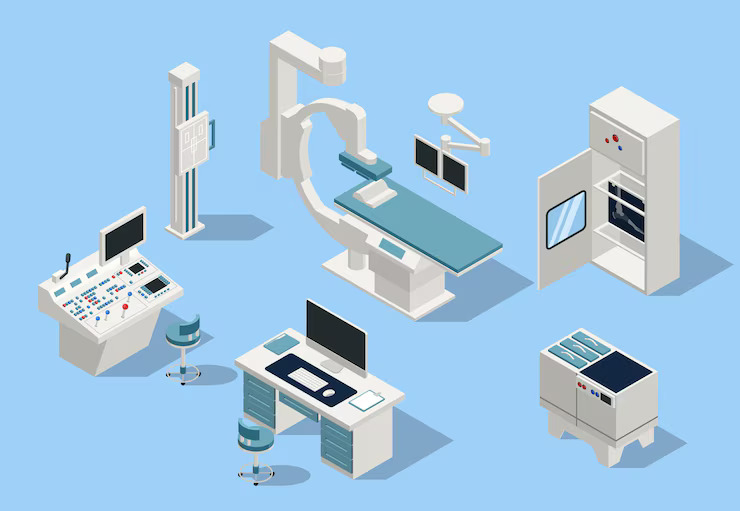
Thu, Jun 12, 2025 12:27 PM
The healthcare landscape is evolving fast, and one question is gaining momentum: Should you be sharing your real-time health data with your doctor? With the rise of wearable health tech, mobile health monitoring, and cloud-based platforms, sharing personal health data could be the future of preventive care—and might just save your life.
Let’s explore how this trend is reshaping healthcare and why it could be the game-changer for patient outcomes.
1. The Shift Toward Preventive Healthcare
Gone are the days when you only saw your doctor after something went wrong. The new focus is on early detection and prevention—spotting warning signs before they become problems.
Wearables and connected health platforms are bridging the gap, allowing doctors to monitor patients between visits. Devices like VMED Total Health Monitoring offer a seamless way to collect and share this data, helping prevent chronic illness through real-time insights.
2. What Kind of Health Data Are We Talking About?
We’re not just talking about steps and calories burned. Today’s advanced tools can track:
-
Heart rate variability
-
Blood pressure
-
Oxygen levels
-
ECG readings
-
Sleep cycles
-
Stress levels
With VMED Total Health, you can monitor all of these and more, then share the data directly with your healthcare provider through the VMED mobile app.
3. Why Sharing Your Health Data Matters
By giving your doctor access to real-time data, you’re enabling them to:
-
Spot potential issues early
-
Customize your treatment plan
-
Track how your body responds to medication
-
Prevent emergency visits or hospitalizations
It’s like having a health check-up without leaving your home.
4. The Role of Wearable Devices in Preventive Care
Smartwatches, biosensors, and mobile-connected diagnostic tools are becoming household staples. But not all devices offer medical-grade accuracy.
This is where VMED’s products stand out. When you buy VMED’s Total Health Monitor, you’re not just getting a fitness tracker—you’re getting a clinically reliable tool designed to be used by both patients and physicians.
5. Are There Risks to Sharing Your Health Data?
Sure, no system is perfect. Concerns around privacy, data security, and misuse of sensitive information are real.
However, VMED employs end-to-end encryption and HIPAA-compliant protocols, ensuring your personal data remains secure and confidential. It’s always wise to review the platform’s privacy settings and choose a trusted provider.
6. Who Benefits Most from Real-Time Health Sharing?
While anyone can benefit, some groups stand to gain the most:
-
Seniors managing chronic diseases
-
Patients with high-risk cardiovascular conditions
-
People undergoing new treatments
-
Individuals with mobility issues
-
Athletes monitoring performance and recovery
VMED offers bundle deals to help families and caregivers monitor multiple users cost-effectively—making it ideal for homes with aging parents or children with chronic conditions.
7. Real-Life Scenarios: How Shared Health Data Saves Lives
Imagine a senior experiencing silent heart arrhythmia. Without constant monitoring, this might go unnoticed. But with a VMED device logging ECGs and alerting the doctor in real time, intervention can happen before a life-threatening event occurs.
This kind of remote care model is no longer futuristic—it’s already here.
8. Integrating Health Data into Your Doctor’s Workflow
One reason patients hesitate to share data is the fear of overwhelming their doctor. But today’s systems are designed for streamlined integration.
VMED’s platform summarizes and organizes key metrics into easy-to-read reports, reducing clutter and helping physicians act quickly.
9. How to Start Sharing Your Health Data Today
It’s simple. Choose a reliable device, track consistently, and connect with a provider who supports remote care. Tools like VMED’s Total Health Monitor and family bundle packages make it easy to get started.
Once you're set up, it’s just a matter of syncing your data and maintaining open communication with your doctor.
10. Final Thoughts: A Partnership in Health
When you share your health data, you're not giving up control—you're gaining a partner. One who can see your health story in real-time, act sooner, and support your wellness more proactively.
This shift toward data-driven preventive care is empowering, efficient, and yes, potentially life-saving. It’s not just the future of healthcare. It’s already transforming lives today.